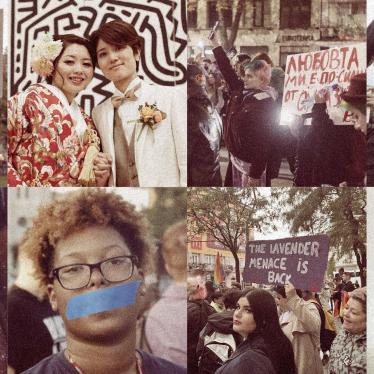The promotion of women's rights to a permanent feature of public and political life is a clear achievement of feminist movements. The extent to which those rights are respected or violated is far less clear. Whether a woman actually enjoys her rights depends on many variables: whether she is indigenous, from a rural or urban area, lesbian, transgender, or has other diverse identities. Another key factor is whether she lives in a country where the rule of law and fundamentals of democracy are respected.
In the context of November 25, the International Day for the Elimination of Violence against Women, it is appropriate to take a look—both generally and specifically—at the progress and setbacks in some countries. Such an analysis will show the importance of the role that democratic safeguards play.
Several countries with authoritarian structures of government offer powerful examples of denial of women’s rights: China’s authoritarian government policies treat women as "wombs" for forced abortions or pregnancies according to perceived demographic "needs"; the Taliban exclude women and girls from education, work, and basic freedoms in Afghanistan; Iran's morality police punishes women who don’t wear the hijab, affecting virtually every aspect of women's lives in public.
Today, Qatar is in the spotlight because of the World Cup. There, Qatar’s laws, policies, and practices ensure that women’s autonomy is largely controlled by a male guardian whose permission is required for many decisions. Women require authorization to marry. Unmarried Qatari women under 25 require authorization to travel abroad. Married women require authorization from the husband for certain reproductive health services such as abortion or sterilization.
All women require permission from their male guardian to receive government scholarships to study. And even at the state sex-segregated Qatar University there is no freedom from the guardianship system: female university students require permission to commute to campus in a taxi, live in student housing, or participate in trips related to their studies.
Of course women also suffer discrimination in countries where democratic safeguards function. Here, in Mexico, the rising number of femicides and impunity for this violence and the lack of action to protect women who are at the greatest risk of violence, like women with disabilities, exemplify our democracy’s inability to address structural challenges.
The stronger the safeguards the better women’s rights tend to function. Struggles around the globe reinforce how fighting for a healthy democracy and fighting for women's rights go hand in hand. Feminist movements, in their plurality and diversity, fight the setbacks for the recognition, guarantee, and protection of women's rights. Women know the dangers—the price they often pay for being heard—but they also know the strength that comes from the global coordination and solidarity of their movements.
The Latin American feminist movements, or “the green tide,” illustrate the powerful impact of coordinated synergy. So does the global sorority joined in protest regarding the Mahsa Amini’s death at the hands of Iran’s morality police. This feminist force rejects authoritarianism, defends democracy, demands rights, and denounces abuses and violence against women and girls around the world.
The International Day for the Elimination of Violence Against Women asks us to mobilize against violence against women and to support feminist movements, such as the feminists who criticized FIFA for choosing Qatar to host the World Cup. With all eyes on Qatar because of the World Cup, members of the international community should use this opportunity to demand the Qatar should respect gender equality by ending the male guardianship system and allowing women to marry, travel, study, and access reproductive health services without interference.
In our own backyard, Mexico should address its femicide problem, including through investigations and prosecutions of the alleged killers. Especially when progress isn’t linear and backslides, we should support our sisters demanding safety and rights to keep governments from backsliding and to make sure that they keep moving forward to expand protection of women’s rights.










